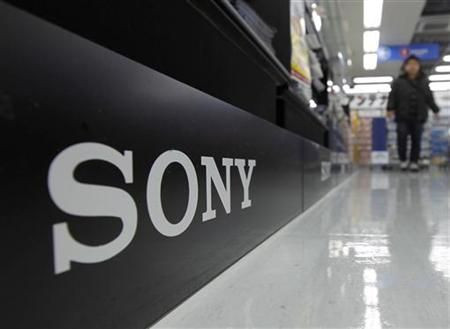Sony Warns of 4th Annual Loss; Flags $2.2 Billion TV Loss

Sony Corp. surprised investors on Wednesday by warning it's heading for its fourth straight annual net loss and that its TV business alone would produce a loss of $2.2 billion due to tumbling demand and a surging yen.
The maker of Bravia TVs, Vaio computers and PlayStation game consoles cut its sales forecast for TVs, cameras and DVD players on Wednesday and said it may report 90 billion yen ($1.1 billion) net loss in the current financial year, scrapping its earlier net profit estimate of 60 billion yen.
Investors had expected Sony to reduce its profit forecast, but not flag a swing to massive losses.
Sony vowed to bring an end to losses in its TV division, which it expects to report its eighth straight annual loss. But it gave scant details of a plan to halve losses next year and drag the unit into the black by March 2014.
I am surprised at the extent of the losses and I was anticipating TV restructuring, so I feel let down on both counts, said Shigeo Sugawara, senior investment manager at Sompo Japan Nipponkoa Asset Management, which owns Sony shares.
We were focused on what would happen to Sony's TV division, but I don't see any drastic restructuring steps, in fact I can't even see any signs they've begun to cut, he added.
Sony said it would revamp LCD panel procurement, but second-in-command Kazuo Hirai declined to comment on reports it would end a panel joint venture with Samsung Electronics.
The lack of firm details from Hirai, in a rare appearance at an earnings conference on Wednesday, dashed investor hopes that the once-stellar brand is at last getting to grips with its struggling TV business and can challenge smartphone rivals.
Sony said it expected TV losses to be 175 billion yen ($2.2 billion) this financial year, including a 50 billion yen impairment charge. It cut TV sales forecast by 9 percent to 20 million sets, its second reduction this year.
The TV business is an essential part of Sony's growth strategy. We, as management, feel a great sense of crisis after seven straight years of losses, Hirai, executive deputy president, told a briefing. He described this year's losses as a necessary step toward recovery.
Hirai, appointed to the company's No. 2 position this year, must map out a plan for earnings growth if he is to take over the top job from Welsh-born Howard Stringer, analysts said.
Shares of Sony tumbled 3.6 percent to 1,520 yen on Wednesday, although the results were released after the close of Tokyo's market. It resumes trading on Friday after a public holiday on Thursday.
RESCUE PLAN 'NOT ENOUGH'
Sony, which also cut its full-year operating-profit outlook by 90 percent to its lowest level in three years, said earlier this week that it would split its television business into three divisions of outsourcing, LCD TVs and next-generation TVs from November 1 to turn around the operation.
Sony might also pull out of its flat-screen venture with Samsung Electronics Co., sources say, which will enable it to cut panel supply costs and improve its TV business earnings. The company revealed no details of such a plan on Wednesday.
Sony has not done enough to rescue its TV business, said Jeff Yeh, chief investment officer of Taiwan-based Capital Investment Trust's overseas portfolios, which has $1 billion of client assets.
It took them 15 years to become an electronics giant, but it only took them the last five years to plunge to where they are, he added, saying he would not buy Sony shares in the near future and did not own any currently.
Many global TV brands including Panasonic and Philips are losing money from TV sales, hit by faltering demand and growing competition from low-cost producers.
Dutch electronics firm Philips agreed on Tuesday to transfer its loss-making TV business into a joint venture with TPV Technology.
Once a symbol of Japan's high-tech might, Sony is struggling to come up with hit devices and finds itself outmaneuvered in TVs by Samsung Electronics and in the booming smartphone market by Apple.
Sony posted an operating loss of 1.6 billion yen for July-September, well below analysts' consensus forecast of 40 billion yen profit.
Sony shares have fallen 48 percent since the start of the year, compared with a 16 percent fall in the broader market, hit by the March earthquake and a massive security breach on its PlayStation and other networks, as well as yen strength and the Thai flooding disaster.
Sony blamed the deluge in Thailand for cutting 25 billion yen in expected earnings, but said it had not yet factored their impact into unit sales forecasts, which it trimmed for a range of major products.
It is the latest in a lengthening list of Japanese firms that have posted poor quarterly results due to the strong yen, flooding and weak demand in the U.S. and Europe.
The list includes Honda Motor Co., Panasonic, Nintendo Co. Ltd. and Nomura Holdings. ($1=78.28 yen)
(Additional reporting by James Topham, Michiko Iwasaki and Lisa Twaronite in TOKYO and Faith Hung in TAIPEI; Editing by Miyoung Kim, Chris Gallagher and Vinu Pilakkott)
© Copyright Thomson Reuters 2024. All rights reserved.





















